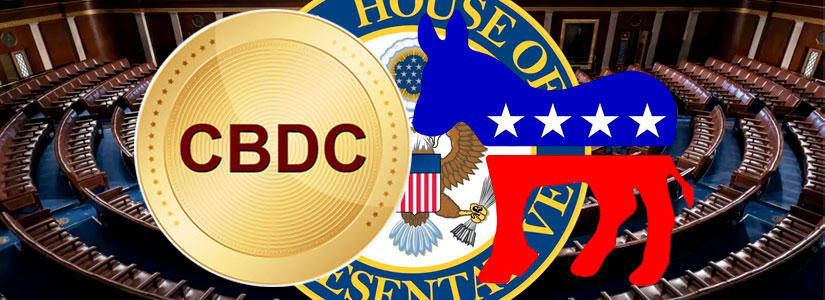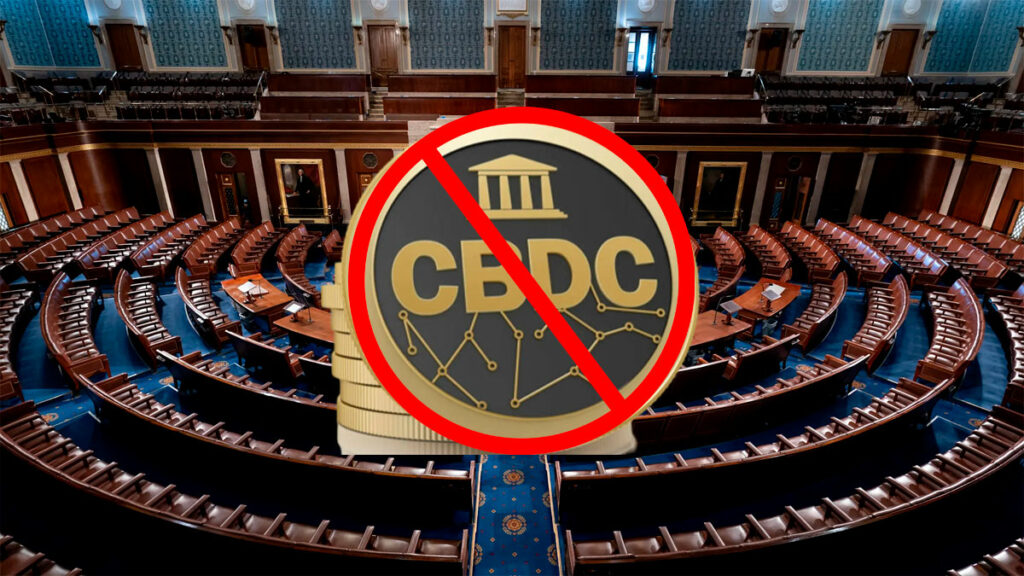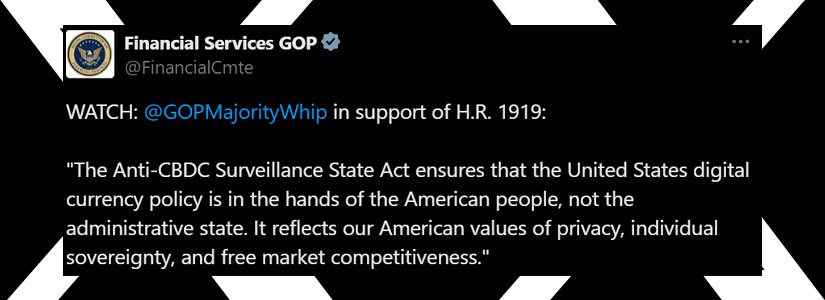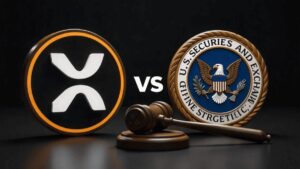TL;DR
- U.S. lawmakers are advancing the Anti-CBDCs Surveillance State Act to block the Federal Reserve from issuing a digital dollar, citing concerns over privacy and government overreach.
- Critics argue that CBDCs could enable mass surveillance and centralized control, threatening individual freedoms and financial sovereignty.
- The debate highlights a political divide, with Republicans opposing CBDCs and Democrats warning that rejecting them could hinder innovation and global competitiveness.
The debate over CBDCs has intensified in the United States, with lawmakers taking decisive action to curb their development. The U.S. House Financial Services Committee recently advanced the Anti-CBDC Surveillance State Act, a bill introduced by House Majority Whip Tom Emmer to prevent the Federal Reserve from issuing a digital dollar.
The move reflects growing concerns that CBDCs could grant the government unprecedented control over financial transactions, posing a direct threat to individual privacy and economic freedom.
Privacy Concerns and Government Overreach
One of the primary arguments against these currencies is the potential for mass surveillance. Critics warn that a government-controlled digital currency could allow authorities to track, monitor, and even restrict transactions based on political or ideological considerations.
Emmer has been vocal about the risks, stating that CBDCs could be used as “programmable money” to suppress dissent and manipulate economic behavior. The bill seeks to prohibit Federal Reserve banks from offering CBDCs directly to individuals, ensuring that digital currency policy remains in the hands of the people rather than unelected bureaucrats.
This stance aligns with broader concerns about financial sovereignty, as opponents argue that these currencies could erode the free market by centralizing control over monetary transactions.

Political Divide and Global Trends
While Republican lawmakers push for restrictions, Democratic leaders have criticized the anti-CBDC movement, arguing that banning digital currencies could stifle innovation and weaken the U.S. dollar’s global dominance.
Representative Maxine Waters has warned that rejecting these currencies outright may cause the U.S. to fall behind other nations exploring digital currency solutions. Over 134 countries worldwide are actively researching or developing CBDCs, with 66 nations in advanced stages of exploration.
The U.S. government’s resistance to CBDCs stands in stark contrast to international trends, raising questions about the long-term implications for financial competitiveness.
The Future of Digital Currency in the U.S.
Despite opposition, the Anti-CBDC Surveillance State Act has gained momentum, reflecting a broader push to safeguard financial privacy. With Federal Reserve Chairman Jerome Powell and Treasury Secretary Scott Bessent expressing skepticism about CBDCs, the likelihood of a government-backed digital dollar remains uncertain.











